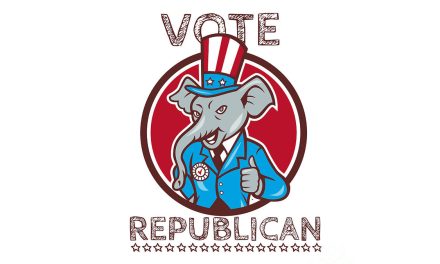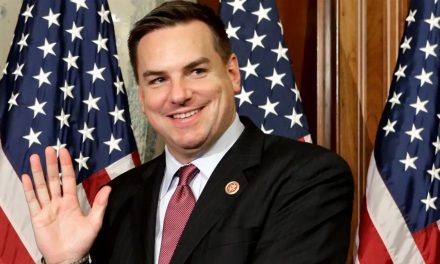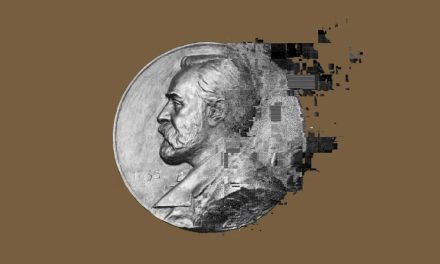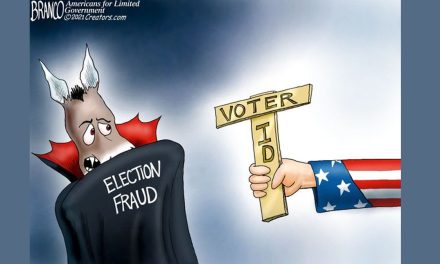
HORIST: Taking a fresh look at public school teachers
Well, I suspect that this commentary is going to get me some nasty push back. That is because we have a romantic notion that teaching is a sacrosanct profession – the most sacred of sacred cows in the world of professional employment. We see them as underpaid, overworked sacrificing guardians of our most precious possessions – our children, our future as a species and culture. We love our teachers. We honor them. We place them on the highest pedestal of public esteem.
But is that a romantic or realistic view? Is our image of teachers a matter of fantasy or a matter of fact?
While I do admire the work of the vast majority of our teachers – who I see as good people and great contributors to our society — I think it is a mistake to deify them. There is another side of the story. It is common sense that we should look at the American teaching profession in its totality – not just through the rose-colored glasses of social and political reverie.
As a public policy and political consultant for more than 40 years, education has been one of my primary professional pursuits. Having been intimately involved in a number of teacher contract negotiations, I have seen the profession from behind the veneer of public adoration. I have seen how the sausage is made.
There seems to be no rational reason to offer universal praise to the teaching profession when millions of our children – especially those in segregated minority communities in our Democrat controlled cities — are being denied even a minimal level of education. Those students are denied a baseline education needed to enter the ranks of higher education or to attain career-level jobs. The overarching public-school education systems – including the teaching ranks – would be lucky to get a “C-minus” unless you graded on the curve.
We do not provide enough money for education?
Lack of funds and resources is the constant mantra of the education industry and unions. Virtually every objective study of student performance shows that there is no correlation between funding and outcomes. In fact, an argument can be made that there is an inverse correlation.
A better correlation can be made on the basis of race. Perhaps the best examples are our great urban school districts. Cities like Chicago, New York and Los Angeles have equal per-student funding across the board, yet students in predominantly white schools outperform students in predominately or exclusively minority schools.
Many high-achieving school systems around the country produce better results with LESS money – and this includes non-urban schools with high percentages of minority students.
Even the comparisons with school systems in suburbs surrounding the major cities are dubious. It is true that many suburban systems spend more on schools – largely because they benefit from taxes on higher-valued property. The difference in outcomes, however, may well be due to socio-economic factors rather than bigger school budgets.
Ghetto education
The education excuse machine generally blames inner-city parents as much—or more – than money for the poor quality of education in the segregated ghettos. This is nothing more than political cover for de facto racism in the management of the urban school systems.
For sure, the cultural environment in the inner cities is not beneficial to quality education, but it is not the barrier. Kids from the most unfortunate oppressive and impoverished environments can do well if provided quality education. In my own hometown of Chicago, Westside Prep founded by Marva Collins, Holy Angels School run by Father George Clements, Hales Franciscan High School and other parochial schools clearly demonstrated that kids from the poorest and most dangerous areas of the urban ghettoes – or even dysfunctional families — have done remarkably well when provided a proper learning environment with competent staff – and most often with less financial resources.
The effect of unionization
One should never compare private sector and public sector unions any more than the private sector businesses can be compared with public sector bureaucracies. Unionization of the education sector started in earnest back in the mid-Twentieth Century. Today, education unions are among the best funded and most powerful lobbyists in America. Their influence has a decided impact on our political process due to the enormous amount of money that flows into the campaign coffers – almost exclusively to the patronizing and accommodating Democratic Party.
Unions have been a detriment to quality education and especially the barrier to education access in the separate but unequal inner-city school systems. One must keep in mind that the teachers’ unions are NOT educational organizations. They are membership organizations devoted to increasing their membership by increasing wages and benefits and decreasing work requirements. They are quasi-partisan political operations designed to fund a favorable political environment.
In my dealing with unions during several negotiations, I can safely say that I have never seen a union propose or accept an offer that did not benefit their members over benefits to the students. It led me to coin the term “the children’s’ budget” to differentiate those line items that flowed to the classroom as opposed to those that flowed to the teaching and administrative personnel.
Not only did the unions reject supporting “the children’s budget” but they would often raid it for wage and benefit increases. In many cases, MORE THAN 100 percent of new money flowing into a school system from state or federal funds would be demanded and gotten by the unions – which meant cuts in the existing budget for such things as classroom equipment and supplies, music and art classes and essential repairs.
Ironically, after forcing cuts in the maintenance budgets to meet union demands, the unions and educational activists would often point to dilapidating conditions – often safety or health risks – as the reason for more funding.
Empirically, it can be shown that the rise of education unions has had no positive impact on the declining statistics in so many of our public-school systems – and arguably can be seen as one of the reasons for the decline in quality education in our public schools.
Since union power is based on members’ dues, necessary reductions in staff are almost impossible to achieve. In Chicago, as the number of students declined, teacher numbers increased. There were enough union teachers on the payroll to reduce class size to 15 – but many were working in the administration in “featherbedding” type jobs.
Besides consuming so much of the money, unions also protect incompetent and failing teachers. They oppose merit pay increases. And most egregiously, they combine with the local political folks to form a barrier against school choice – warehousing kids rather than giving them even a chance at a quality education.
Are teachers really underpaid?
Not really. But it all depends on how you see the job – full-time of less than full-time. If you were to say that teaching is NOT a full-time job, you would be browbeaten to the floor. I know. But I do not know of any full-time salesclerk or factory worker who enjoys roughly six-hour workdays. Most workers do not get two-month summer vacations, extended days off over Thanksgiving, Christmas and “Spring break” – and any number of holidays that are not days off for regular workers. What nine-to-fiver gets a “sabbatical” year off every few years?
Yeah! Yeah! I know. Teachers put in all those hours at night grading papers, counseling students or coaching the teams. The first problem is that there are far fewer teachers putting in non-compensated overtime than you might believe.
Conversely, in Detroit there was an assistant coach who got full pay for working approximately two hours a day four days a week – essentially a week’s pay for a day’s work. There is also a trend for more senior teachers to arrange study-hall time at the end of the day so they can leave work early.
Yes, teachers do teach summer school or coach teams during non-school hours, but that is often for extra pay. Many times, they get paid for chaperoning dances and other extracurricular events. These are part-time jobs within their own profession. Such extra pay is a growing trend negotiated by the unions.
In addition, because of the amount of available free time, teachers have second careers as real estate brokers, bartenders, actors, tutors or some home-based businesses. In one negotiation, I proposed that teachers actually work an eight-hour day on campus and use the extra hour or two to grade those papers. The reaction was just short of physical violence.
During one negotiation, we calculated teacher pay on an annual hours-worked basis. Turns out they were making more than plumbers – often cited as among the highest paid hourly workers.
Finally, teacher pay should be based on the success of the students they teach. Nothing else should matter. In many instances, the teachers are not worth the pay they are currently getting – and it is more than just a few “bad apples.” Union protection has had a decidedly negative impact on quality education.
Dealing with really bad teachers
While much is appropriately made of the problem of predatory pederasty in the Catholic Church, our idolized image of the teaching profession has prevented an equally appropriate assessment and recognition of dangerous teachers. Yes, we hear a case now and then about some young hot teacher taking up with a student. However, that is the tip of the iceberg. The level of inappropriate behavior –sexual and otherwise — in and out of the classroom – as seen in “incident reports” – is a growing problem. Whether there is more of it, or just more reported, it needs to be addressed.
Summary
The purpose of this commentary is not to cast aspersions on the vast majority of good teachers doing their job and actually educating our children. But in romanticizing the profession, we are not coming to grips with real problems in our public educational system. We cannot keep sweeping the failures and the faults under the rug for the sake of imagery.
One of the evergreen mantras of education is “children first.” Nothing could be further from the truth.
So, there ‘tis.


























Public education should be outlawed, all they do is turn out more liberal lazy people who have been lied to for 12 yrs,
Unions have ruined the teaching profession. Period. I was in college in the mid-sixties when unions came to power. I was an education major. In 1968, it all changed. I had several older teachers tell me they were getting out as prior to this time teaching was seen as a profession, but unions were changing it to a job. My fellow male students all decided they wanted to teach in elementary school. Not because they liked that age group, but because it was seen as the fastest route to administration where the “real” money was. So I changed my major to journalism but soon dropped that major also. This was at the same period where journalism philosophy was changing from the fair presentation of both sides of an issue to something called “advocacy journalism” where your personal viewpoint was inserted into articles in various ways. Again, mid-sixties crap. Years later, after success as a novelist, I was given the position as writer-in-residence at the University of Toledo. A week before classes began, the department chair called me in for a meeting. Thinking he was going to tell me the department’s teaching philosophy, I was hugely mistaken. He spent our meeting time telling me Ohio had the best union benefits in the country and how to take advantage of it. He said to order prescription sunglasses for everyone in my family as they’d pay for it. He was proud to tell me he could get anything he wanted from the school because he was gay and the school was so afraid he’d sue them, they gave him anything and everything he asked for. He was also the worst teacher in the department, only showing up for half his classes and when he did, he was either drunk or high or both. It would take a book to just outline how far education has fallen in this country. Maybe I’ll write one…
Thank you for your comments! Right on!
Some of Mr. Horist’s comments are on target, while others are not. Teaching is the hardest job you will ever love. The first doctrine of teaching is “Do no harm to any child, whether physical, emotional or mental.” Yet a very tiny percentage of teachers have sex with their students and they should be fired without getting a pension after being given a fair trial. The shift in education came about 30 years ago when textbook companies and test publishers were given the green light to be considered experts in education, while pedagogues who were educating students for over a century were given the signal that they did not know as much as the corporate people. This was very strange to me while I was a teacher, (I am retired now) and still is.
As for public schools, they are the backbone of any free society, and it has been proven in evaluation after evaluation that charter schools are not any better than public schools. And 1 more fact: unions helped create the middle class in the United States, and I will always be “Union loud and proud” because my union helped me both professionally and financially. I am a “graduate” of the NYC UFT Peer Intervention Program and it really helped make me a much better teacher. College gives you the information, a program like the Peer Intervention Program gives you the mindset to be a professional. Thank you for taking my comment.
We need a separation of school and state
No pushback here. The unions have stacked the deck so that bad teacher’s get promoted based on seniority, not performance. Good teachers get promoted the same. No incentive to excel. And good teachers that want to change school systems cannot do so without restarting a new tenure track at a lower pay scale. The union rigs the system for underperformance and mediocrity. Bad for students, terrible for taxpayers.
Ever since the Marx invasion of our Ivy League schools in the 1880s, and the success of Saul Alinsky and his “Rules for Radicals” (1971), our primary and secondary public schools and their unions, have been taken over from a corrupt socialist slant. My kids and grand kids were fortunate to have good teachers. It’s time we challenged such ideology at the ballot box.
Excellent article…reinforces everything I already knew and/or suspected. It also explains well why every single member of the Congressional Black Caucus is against any kind of school choice. They are all solidly in the pockets of the teachers unions. Disgusting! I am so disappointed in our public schools…they are indeed dumbing down America.
Denied an education???????????
Get real!!!!!!!!!!!
REFUSING to get an education t enable them to become a contributing member of the EXISTING society is far more accurate a statement! You CAN NOT educate a child whose parents tel them “education” is total bullshit designed to keep them “oppressed!” So stop bad mouthing teachers!
Of course there are incompetent teachers but with the students they are supposed to be educating coupled woth parents (or perhaps more accurately PARENT) of these inner city kids what do you expect? Some sort of miracle? NOTHING is going to change or improve until we get the federal bureaucratic whiners out of education!
You are living in the fictional world established by the city political machines and the education unions. It is a false narrative to cover up for the fact that they REFUSE to provide education to kids in the segregated communities as a means of keeping power and the flow of money from the unions to the politicians. It is one of the greatest immoralities of our times.